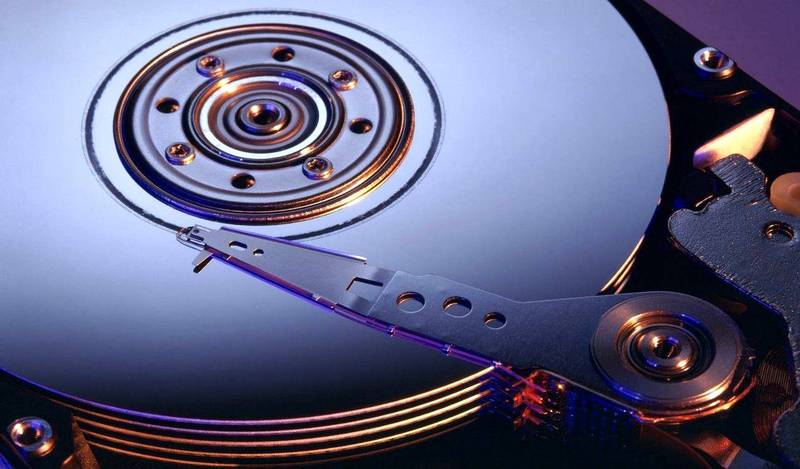Mass Storage Devices
In an information system, mass storage is that type of memory, also called secondary memory in contrast to the main memory, able to collect large amounts of data in a non-volatile mode. Therefore, the memory device used at this scope must be able to mantain the availability of the data stored, even after its disconnection from the main system or after switching off/restarting the system itself.

Such computer devices are hard disks, optical/removable media such as CDs, DVDs and BlueRays, drives using magnetic media, USB drives and Flash/Nand memory cards, and network storage units, from cheap NAS to the much more expensive SAN/DAS.
Insights Archive
BackBlaze
Year 2019
- Backblaze Hard Drive Stats Q2 2019
- More From Our Annual Survey: Choosing the Best Cloud for Backing Up
- The Shocking Truth: Managing for Hard Drive Failure and Data Corruption
- 12 Power Tips for Backing Up Business Data
- When Ransomware Strikes
- What’s the Diff: Durability vs Availability
- Backblaze Vaults: Zettabyte-Scale Cloud Storage Architecture
- Heard Around Backblaze: June 2019
- Out of Stock: How to Survive the LTO-8 Tape Shortage
- Come and Get ‘Em: Storage Pods That Is
- An Introduction to NAS for Photo & Video Production
- These Aren’t Your Ordinary Data Centers
- What’s the Diff: Sync vs Backup vs Storage
- Who We Are & What We Do
- Connect Veeam to the B2 Cloud: Episode 4, Using Morro Data CloudNAS
- Backblaze Hard Drive Stats Q1 2019
- How to Have Fun This Summer and Keep Your Data Safe, Too
- Ransomware: How to Prevent Being Attacked and Recover After an Attack
- 3-2-1 Backup Best Practices Using the Cloud
- Backing Up Isn’t Hard to Do (for Musicians)
- Migrating Your Legacy Archive to Future-Ready Architecture
- How to Use Multiple Hard Drives With Time Machine
- SSD 101: How Reliable are SSDs?
- Backblaze Hard Drive Stats for 2018
- What’s the Diff: Hot and Cold Data Storage
- SSD 101: How to Upgrade Your Computer With an SSD
- An Inside Look at the Backblaze Storage Pod Museum
- A Workflow Playbook for Migrating Your Media Assets to a MAM
- How Backup and Archive are Different for Professional Media Workflows
Year 2018
- What’s the Diff: NAS vs SAN
- Hard Drive Stats for Q3 2018: Less is More
- Backblaze Durability is 99.999999999% — And Why It Doesn’t Matter
- Hard Drive Stats for Q2 2018
- The Helium Factor and Hard Drive Failure Rates
- Hard Drive Stats for Q1 2018
- HDD vs SSD: What Does the Future for Storage Hold?
- 500 Petabytes and Counting
- Backblaze Hard Drive Stats for 2017
Year 2017
- What is HAMR and How Does It Enable the High-Capacity Needs of the Future?
- Hard Drive Stats for Q3 2017
- Yes, Backblaze Just Ordered 100 Petabytes of Hard Drives
- Hard Drive Cost Per Gigabyte
- Hard Drive Stats for Q2 2017
- Hard Drive Stats for Q1 2017
- Backblaze Hard Drive Stats for 2016
Year 2016
- Hard Drive Stats for Q3 2016: Less is More
- What SMART Stats Tell Us About Hard Drives
- Hard Drive Stats for Q2 2016
- One Billion Drive Hours and Counting: Q1 2016 Hard Drive Stats
- Hard Drive Reliability Review for 2015
Year 2015
- What Can 49,056 Hard Drives Tell Us? Hard Drive Reliability Stats for Q3 2015
- Hard Drive Reliability Stats for Q2 2015
- HGST 8TB Drives – Helium Makes Them Fly
- Hard Drive Reliability Stats for Q1 2015
- A Look at Backblaze’s Toshiba Hard Drives
- What is the Best Hard Drive?
- Our 6 TB Hard Drive Face-Off Revisited
- Reliability Data Set For 41,000 Hard Drives Now Open Source
Year 2014
- Our 6 TB Hard Drive Face-Off
- Hard Drive Reliability Update – Sep 2014
- Hard Drive Temperature Does It Matter?
- What Hard Drive Should I Buy?
Year 2013
- Enterprise Drives: Fact or Fiction?
- How long do disk drives last?